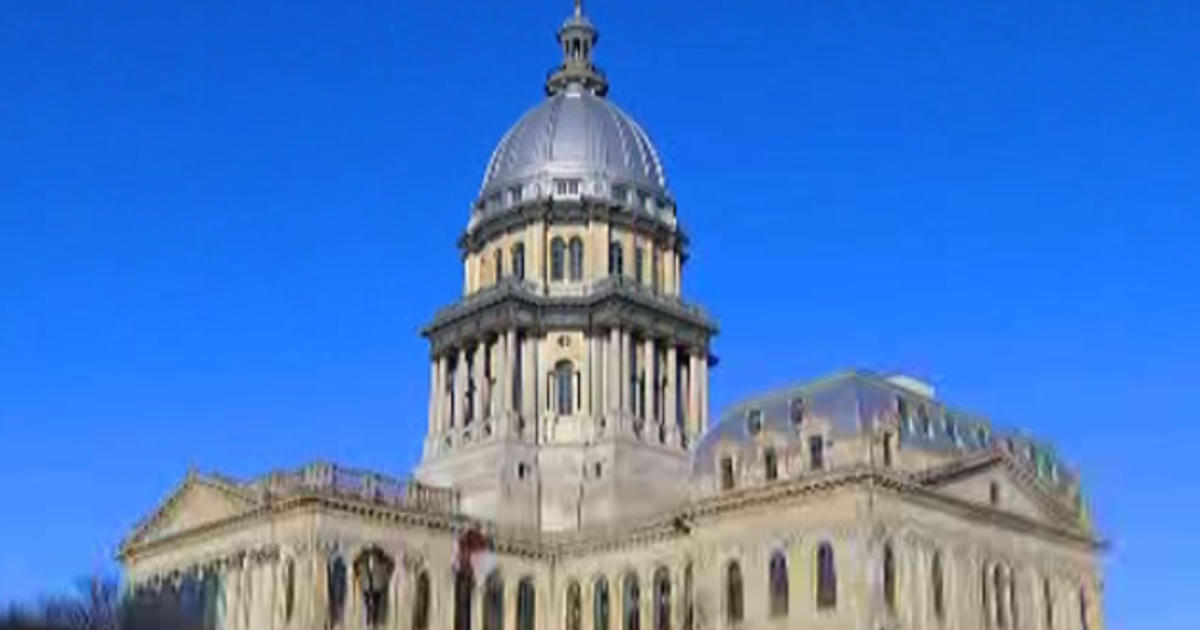Downstate Lawmaker: Kick Chicago, Cook County Out Of Illinois
UPDATED 11/23/11 5:41 a.m.
DECATUR, Ill. (CBS) -- A downstate lawmaker would like to kick Chicago and Cook County out of the state of Illinois.
CBS 2 Political Producer Ed Marshall says state Rep. Bill Mitchell (R-Decatur) finds that Cook County dominates all politics and legislation in Springfield, and he thinks it is time for the state to cut its largest population center adrift for the "betterment" of the rest of Illinois.
He says Cook County should be allowed to exist apart from the state like the District of Columbia, with its own government.
LISTEN: WBBM Newsradio's Alex Degman reports
Podcast
Mitchell introduced formal legislation Tuesday that "urges Congress to enact legislation dividing Illinois and Cook County into separate states." Rep. Adam Brown (R-Decatur) is the only lawmaker to have signed on as a co-sponsor.
The proposed Joint Resolution says the populations of Cook County and the other 101 Illinois counties "hold different and firmly seated views" on politics, society and economics, and "both groups should enjoy the chance to govern themselves with their firmly seated values."
In comments to WBBM Newsradio's Alex Degman, Mitchell characterized Cook County lawmakers as fiscally reckless.
"They want what they want, and what I'm staying as a downstater, 'OK, go and do what you want to do,'" Mitchell said. "Increase your debt. Spend more money. Add more people on public assistance."
Brown also elaborated further on his complaints about differences in "firmly seated values" in comments to the Decatur Tribune.
He told the paper he blames Chicago Democrats for the state income tax increase, the legalization of same-sex civil unions, and the abolition of the death penalty, which he called "liberal policies (that) are an insult to the traditional values of downstate families."
The text of the resolution argues that there is precedent for states splitting in two, citing an example from nearly 200 years ago.
It points out that until 1820, Maine was part of the State of Massachusetts in an arrangement that "did not work very well," and the inhabitants of Maine successfully voted for secession.
Mitchell said the collar counties would remain part of Illinois, and would be treated in a way similar to how suburbs of New York City in New Jersey and Connecticut are treated.
He says he is not worried about Cook County tax and tourism dollars leaving the state, as expenses would be different once the county breaks off.
The entire state of Illinois has about 12.8 million residents, of whom 5.2 million, or about 40 percent, live in Cook County. About 2.7 million, or 52 percent, of Cook County residents live in the city of Chicago, while the remainder live in the suburbs.
The idea of separating Chicago or Cook County from Illinois is rarely taken seriously, but it is hardly new.
Last year, the Chicago Reader's "Straight Dope" column entertained a reader question arguing that if Chicago were severed from Illinois, the state would be "far less likely to have people like (Rod) Blagojevich for governor," and conservative downstate residents would have their votes counted in national elections with the "blue streak" in Chicago eliminated.
But while the downstate Quincy resident was asking whether Illinois would be better off without Chicago, the columnist known as Cecil Adams instead argued that Chicago would be better off without Illinois.
In the often snide column, Adams explored the idea of cutting the nine metro Chicago counties loose. He pointed out that the new Illinois would be without 22 of the state's 25 most popular tourist attractions, 80 percent of the state's equalized assessed real estate valuation, all 18 billionaires, and "pretty much all the decent restaurants."
Chicago would also get "virtually all the tall buildings," while the new Illinois would be left with attractions such as the World's Largest Catsup Bottle, Adams wrote in the March 2010 column.
"So I think it'd work out for both sides," he wrote. "We'd get most of the people, material possessions, and things that make life worth living. You'd get a state free of us."
But the subject of separating Chicago from Illinois has not been limited to snarky contemporary newspaper columns. In 1925, there was a serious proposal in the Chicago City Council to secede from Illinois and form a new state.
The reference book Declarations of Independence by James L. Ewrin recalls that reason for the proposal was a reversal of the situation that Rep. Mitchell is complaining about. In the 1920s, lawmakers in Springfield refused to redraw legislative districts to take into account the city's fast-growing population.
The City Council approved a resolution by Ald. John Toman calling for the city to secede from Illinois, and aldermen said they would give the state two years before they started moving toward secession, Erwin recalls.
State lawmakers ignored the threat, Erwin wrote. But proposals for Chicago or Cook County to secede periodically came up again, until the new 1970 state Constitution granted home rule to Chicago and other major cities, he wrote.



